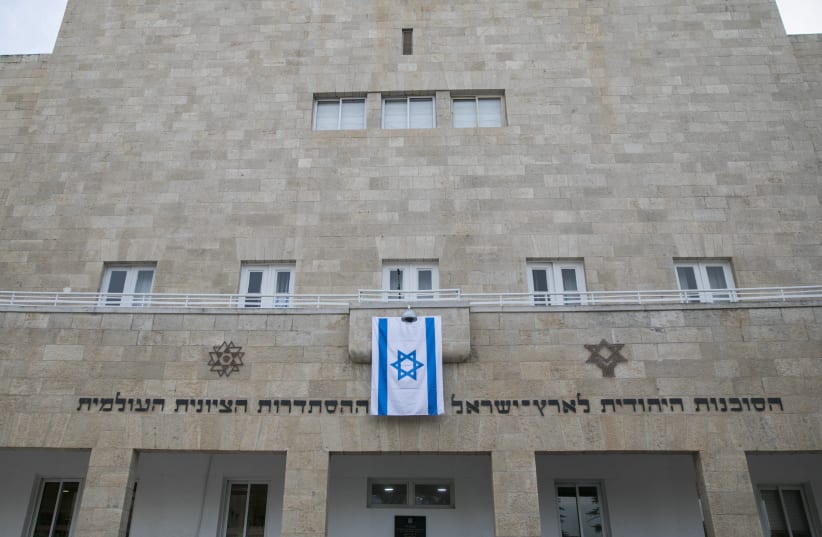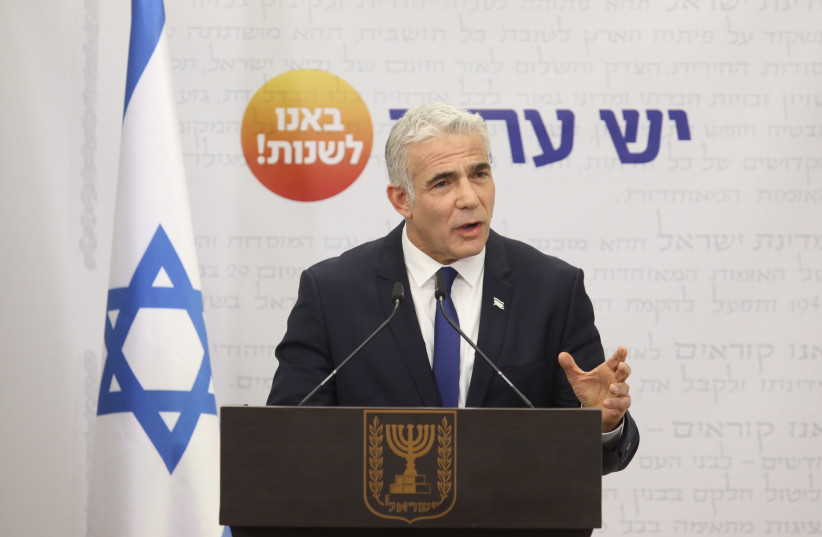Perhaps one of the most important organizations designed to bridge between Israel and global Jewry is the Jewish Agency. Since its founding by the World Zionist Organization (WZO) in 1929 to settle Jewish immigrants in Israel, the Jewish Agency (JAFI) has evolved to have 50% control by diaspora Jewry with remaining 50% by the WZO.
In the past few months, the Jewish Agency has made headlines with an engaging race for the coveted role of its Chair. The position was supposed to have been filled during the JAFI Board of Governors' meeting in October 2021. Foreign Minister and Alternate Prime Minister, Yair Lapid, rightly requested to delay the nomination to November 17th to give precedence to more pressing issues for the new coalition government.
But that deadline had come and gone and still this important role has not yet been filled. This begs two questions: 1) what is Israel’s view of its relationship and responsibility with global Jewry? and 2) Is the role of the Chair of JAFI to serve as a global Jewish leader or to function as political patronage to solve domestic coalition challenges?
These questions get further traction when one considers that the current Knesset has yet to convene its Aliyah, Absorption and Diaspora committee, nor has a chair for this committee been selected. Both need to be addressed posthaste.
Today, JAFI must not only contend with staying relevant to its audiences but also address how to engage new ones. World Jewry and Israel are facing a wider range of challenges. Around the world, Jewish youth are increasingly disconnected from their identities and from Israel, Zionism is under a frontal attack, and virulent and increasingly violent Anti-Semitic incidents are growing at an alarming rate. In this turbulent environment, a resurgent and confident Jewish Agency is needed to play a pivotal role in stewarding the Jewish future and to reconstitute the notion of peoplehood and Areivut (mutual responsibility).
To be that steward, the national Zionist Institutions (JAFI among them) cannot continue with business as usual. They must evolve to reflect the Jewish people in all of its diversity. As Chair of the World Confederation of United Zionists, I continue to seek a more inclusive vision and representation to reflect our people’s glorious diversity within our Institutions.
The expanded diversity of candidates must become the norm. The mere fact that we are seeing strong female candidates points to a timely development. Alas, this trend has yet to reach the decision-making level.
Still, 80% of the JAFI selection committee are white men – as are ALL the leaders of our National Institutions. We cannot speak about engaging new audiences when our leadership does not embody that spirit.
To be perfectly clear, no candidate should be selected solely due to their gender or ethnicity, just as no one should be discriminated against on this basis. But the simple fact is that in almost 100 years of existence, there has NEVER been a female Chair of the Jewish Agency.
The old arguments, that not enough qualified women apply, are simply not relevant in this case. In my view, at least three very worthy female candidates have been put forth. One, Irina Nevzlin, has a record of leadership within ANU, the Jewish Peoplehood Museum; the second, Ruth Calderon, the founder of Alma, built a global home for Jewish culture; and the third, Fleur Hassan-Nahoum, is deputy mayor of Jerusalem and cofounder of the UAE-Israel business council. These are three incredibly competent, charismatic, and dynamic female leaders who each bring value and are more than qualified to lead the Jewish Agency as it undergoes the process of reinvigorating its mission and ranks.
As the JAFI selection committee continues its process, they have the opportunity to appoint a uniter, a bridge-builder, one who can represent the Jewish world in its diversity, one who can ensure the financial viability of the organization, one who can engage new cultures, communities and audiences, and one who can also tackle the pressing challenges facing the Jewish people.
I hope that members of the selection committee will recognize the historic opportunity before them. And I hope they will embrace the spirit of change and inclusion that the current Israeli government has promised. It is their time to step up and reprioritize the role of the Chair to lead the reimagination of the Jewish Agency. Rather than a convenient political appointee, it is time that the flagship Jewish organization selects a dynamic female global Jewish leader to usher in a new era of positive Zionist engagement.
If not now, when?

